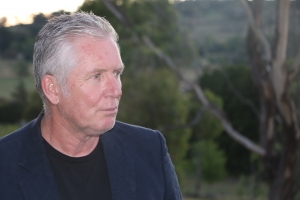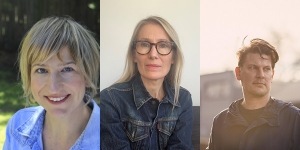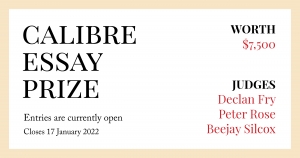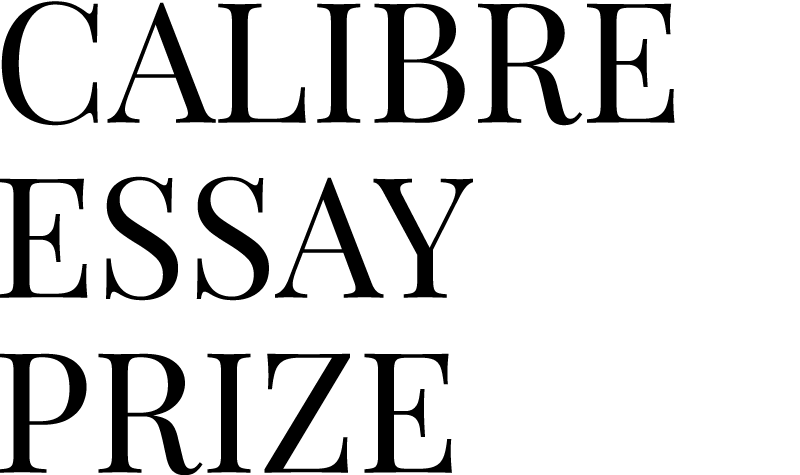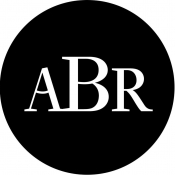Competitions and programs (118)
2022 Calibre Essay Prize Winner and Shortlist
Distinguished classical musician Simon Tedeschi has won the sixteenth Calibre Essay Prize, worth a total of $7,500.
Tedeschi receives $5,000 for his essay ‘This Woman My Grandmother’, while the runner-up, Sarah Gory receives $2,500 for her submission, ‘Ghosts, Ghosts Everywhere’. The winning essay was published in the May 2022 issue of ABR. The runner-up essay appeared in the September 2022 issue.
The judges – Declan Fry, Beejay Silcox and Peter Rose, Editor of ABR – selected a shortlist of twelve essays from a field of 569 entries from seventeen different countries. The ten other essays making up the shortlist are listed below.
Congratulations to Simon Tedeschi and all the writers shortlisted in the 2022 Calibre Essay Prize!
In ‘This Woman My Grandmother’, Tedeschi explores his grandmother’s story:
‘My grandmother, a Polish Jew, the only survivor of a family obliterated by the Nazis, wrote a memoir of her wartime years shortly before she died sixteen years ago. Only recently was I able to bring myself to read it. When I did, it caused not only a torrent of memory to erupt but spurred me to find out more about this tormented woman who, despite her vociferousness and overbearing presence, was the bearer of secrets too painful to divulge.’
The judges commented on Simon Tedeschi’s essay:
This year’s winning essay has a powerful, memorable duality: it’s at once forceful and gentle, timeless and timely. While Tedeschi plays with eternal themes – the fragility of memory and intergenerational anguish – there is also a quiet urgency to his account of his grandmother, Lucy’s, complicated legacy. We stand on the cusp of a great forgetting: the Holocaust is fading from living memory, and Covid is ravaging our elderly. As we lose our story-keepers and war rages in Europe, it feels vital not just to honour the past, but to acknowledge its knots and nuances. That is what Tedeschi has done in this remarkable essay, with grace, care, and glorious prose craft.
2022 Calibre Essay Prize Shortlist:
Linda Atkins (NSW): ‘Shouting Abortion’
Jessie Berry-Porter (Vic): ‘Milos As a Symbol’
Chrysanthi Diasinos (NSW): ‘Οι παρχαρομάνες και το χρυσόραμμαν’
Michael Garbutt (NSW): ‘The Museum of Mankind’
Savannah Hollis (Vic): ‘The Diary of a Bottom Bitch’
Heather Taylor Johnson (SA): ‘The Giving and Taking Away of Voice’
Michaela Keeble (NZ): ‘The Bind: On Reading’
Emma Shortis (Vic): ‘American Guns’
Kirsten Tranter (USA): ‘The Time of Writing’
Miriam Webster (Vic): ‘The Trouble with Endings’
2022 Jolley Prize Judges
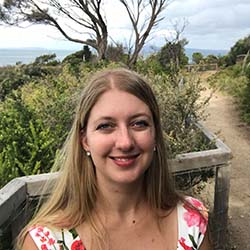 Amy Baillieu is Deputy Editor of Australian Book Review. She completed a Masters of Publishing and Communications at the University of Melbourne in 2011 and holds a Bachelor of Arts from the same university. Prior to becoming Deputy Editor of ABR in 2012, she worked in other editorial roles at the magazine and was Philanthropy Manager from 2011–12. She regularly reviews fiction for ABR and also works as a freelance editor.
Amy Baillieu is Deputy Editor of Australian Book Review. She completed a Masters of Publishing and Communications at the University of Melbourne in 2011 and holds a Bachelor of Arts from the same university. Prior to becoming Deputy Editor of ABR in 2012, she worked in other editorial roles at the magazine and was Philanthropy Manager from 2011–12. She regularly reviews fiction for ABR and also works as a freelance editor.
 Melinda Harvey is a book critic who has written for a wide variety of publications, including ABR, since 2004. She is on the judging panel of the Miles Franklin Literary Award (2017-present) and works on the Stella Count. She currently holds a JUNCTURE Fellowship for Mid-Career and Established Critics at the Sydney Review of Books and is Lecturer in English at Monash University.
Melinda Harvey is a book critic who has written for a wide variety of publications, including ABR, since 2004. She is on the judging panel of the Miles Franklin Literary Award (2017-present) and works on the Stella Count. She currently holds a JUNCTURE Fellowship for Mid-Career and Established Critics at the Sydney Review of Books and is Lecturer in English at Monash University.
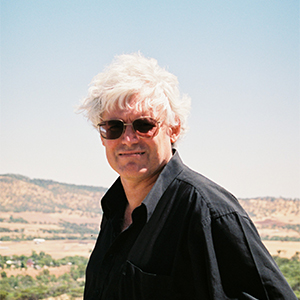 John Kinsella is the author of over forty books. His most recent publications include the short story collection Pushing Back (Transit Lounge, 2021) and the poetry collection Supervivid Depastoralism (Vagabond, 2021). The first volume of his Collected Poems, The Ascension of Sheep, is due out shortly with UWAP (2022). He is a Fellow of Churchill College, Cambridge University, and Emeritus Professor at Curtin University. With Tracy Ryan he is the co-editor of The Fremantle Press Anthology of The Western Australian Poetry (2017). He lives with his family in the Western Australian wheatbelt.
John Kinsella is the author of over forty books. His most recent publications include the short story collection Pushing Back (Transit Lounge, 2021) and the poetry collection Supervivid Depastoralism (Vagabond, 2021). The first volume of his Collected Poems, The Ascension of Sheep, is due out shortly with UWAP (2022). He is a Fellow of Churchill College, Cambridge University, and Emeritus Professor at Curtin University. With Tracy Ryan he is the co-editor of The Fremantle Press Anthology of The Western Australian Poetry (2017). He lives with his family in the Western Australian wheatbelt.
2022 Peter Porter Poetry Prize Winner
Anthony Lawrence is the winner of the 2022 Peter Porter Poetry Prize worth a total of $10,000. This was announced at an online ceremony on January 19.
Anthony receives $6,000 for his winning poem, 'In the Shadows of Our Heads', while the four other shortlisted poets – Chris Arnold, Dan Disney, Michael Farrell, and Debbie Lim – each receive $1,000. The full shortlist, including the winning poem, is available to read online and is published in the January–February issue of ABR.
This year’s judges – Sarah Holland-Batt, Jaya Savige, and Anders Villani – shortlisted five poems from 1,328 entries, from 34 countries.
Congratulations to Anthony Lawrence and to all the poets shortlisted and longlisted in the 2022 Peter Porter Poetry Prize!
In their report the judges noted:
Brimming with surprise, supple, pitch-perfect imagery, linguistic energy and wit, ‘In the Shadows of Our Heads’ is a stunningly vibrant poem by a masterful technician at the top of his game. This unusual love poem revels in the unpredictability of those connections, intellectual and physical, forged between simpatico minds and damaged bodies across space and time. A vivid, potent reminder of love’s dance of proximity and distance – at a time when these fundamental bases of human intimacy have been thrown into fraught relief – it is a work deftly attuned to our present moment.
In the Shadows of Our Heads
by Anthony Lawrence
I’d called the Humane Society to report the neglect
of a neighbour’s dogs. A woman assured me there
would be an investigation, took my details, then asked
if I needed more assistance. I mentioned the flightless
swans of Malta, and she said Imagine, ten thousand years,
then added They were the size of the pygmy elephants
that also roamed the island. To test her liability
to respond in a capering manner, I described the pattern
of my sleep and how, after drinking Akvavit, my cells
become part of the dust of the Horse Head Nebula.
Your astral projection is world class, she said. I could
see a swivel chair, the noise-cancelling headset, a light
blue blouse embroidered with a hook or claw symbol,
the windows of light on her shoes. Are your projections
always so peregrinatory? I’m curious, as I sense I’m far
too fond of the regional. Satisfied, I felt compelled to ask
if Spring, in the mountains, had ever crossed her radar
as a good season and reason for marriage, but chose
instead to invite her for a drink. I don’t date, but we
could drive, as long as you’re partial to Elgar’s
‘Nimrod’, anything by Wagner, and my minder, Karl,
who, depending on his mood, likes to follow at a clip
or respectful distance in his Beamer. I laughed. Alright,
she said, His name is Bob, he’s either a serial tail-gater,
or he moves like a tortoise in his Triumph Mayflower.
On Sunday morning, her music darkening the speakers,
we passed the wreckage of housing estates, then onto
a road lined with trees that cast flickering lines
of light and shade like a view through the arrow-slit
of a zoetrope. We opened the past and found things
worth sharing. As a child she’d been orphaned when,
escaping a forest fire, the family car had come adrift
in smoke and driven off a bridge. She had lost an eye
and her spine had been broken. The monocular vision
and limp had ended her ribbon-floor exercise routine.
When we met, she had approached like someone
leaning into wind. I told her I’d stolen meteor samples
from an observatory on a school excursion. This had led
to frequent stealing, and when I said kleptomania,
I lowered my voice and concluded the confession
with the words illness, serial, and the eight-point-turn
of psychopharmacological. When we stopped for lunch,
I sat across from her by a river whose patchwork surface
she described as snake skins sewn haphazardly together.
I saw the glass eye, and she said Ocular. Three perfect
syllables, then they ruined everything with Prosthesis.
Her hand hovered briefly over mine before moving on.
I said nothing and she took a long time to answer it.
We discussed rescue dogs and how certain bats would
make good pets if only their bites weren’t potentially
lethal, causing fever and delirium. At fifteen, she had
run away to live in a trilogy of Mervyn Peake novels.
I suggested we return via a pub where the Guinness
is collared velvet, the music live. As we stood, the flame
of a kingfisher fluttered on like a pilot light and went out
in the shadows of our heads.
_____________
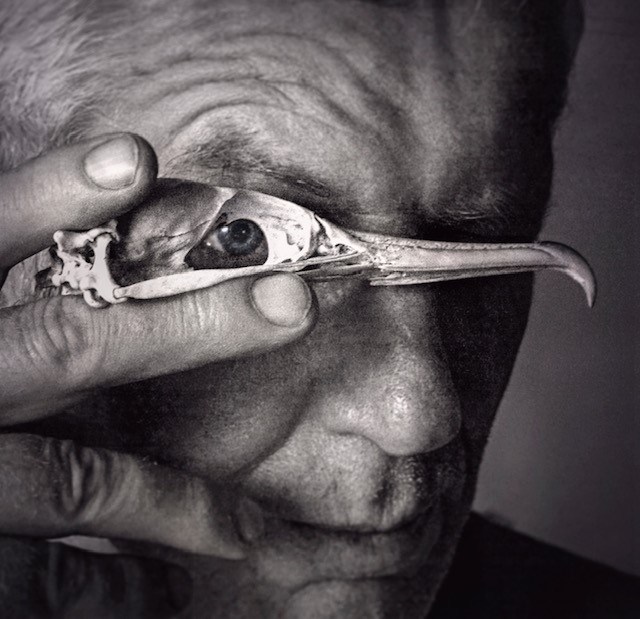 Anthony Lawrence has published sixteen books of poems, the most recent being Ken (Life Before Man, 2020). His books and individual poems have won a number of awards, including the Peter Porter Poetry Prize, the Prime Minister’s Literary Award for Poetry, the Philip Hodgins Memorial Medal, and the Blake Poetry Prize. A new book of poems, Ordinary Time, a collaboration with the poet Audrey Molloy, is to be published in 2022. He teaches Creative Writing at Griffith University, Queensland, and lives on Moreton Bay.
Anthony Lawrence has published sixteen books of poems, the most recent being Ken (Life Before Man, 2020). His books and individual poems have won a number of awards, including the Peter Porter Poetry Prize, the Prime Minister’s Literary Award for Poetry, the Philip Hodgins Memorial Medal, and the Blake Poetry Prize. A new book of poems, Ordinary Time, a collaboration with the poet Audrey Molloy, is to be published in 2022. He teaches Creative Writing at Griffith University, Queensland, and lives on Moreton Bay.
Further information
The Peter Porter Poetry Prize is one of Australia’s most prestigious poetry awards.
Subscribe to ABR to gain access to this issue online, plus the ABR archive.
Click here for more information about past winners.
We gratefully acknowledge the long-standing support of Morag Fraser AM and Andrew Taylor AM.
2022 Elizabeth Jolley Short Story Prize
ABR is delighted to announce the shortlist for the 2022 ABR Elizabeth Jolley Short Story Prize. The shortlisted stories, which appear in our August issue, are (in alphabetical order):
‘Dog Park’ by Nina Cullen
‘Natural Wonder’ by Tracy Ellis
‘Whale Fall’ by C.J. Garrow
The overall winner, who will receive $6,000 from the total prize money of $12,500, will be announced at a special online ceremony at 6pm on 11 August. This is a free event and all are welcome but please contact us to register your interest at This email address is being protected from spambots. You need JavaScript enabled to view it. so that we can send you the Zoom link on the morning of the event.
The 2022 Jolley Prize was judged by Amy Baillieu, Melinda Harvey, and John Kinsella. The judges’ report, as well as the full longlist, can be found below.
The Jolley Prize Shortlist
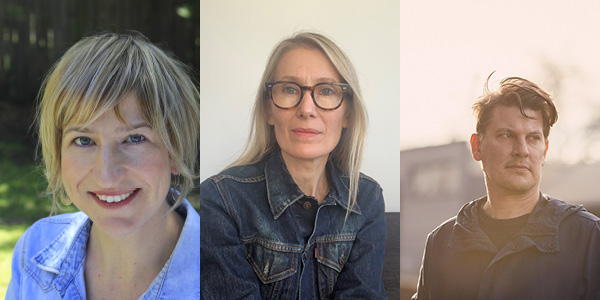 The 2022 Jolley Prize shortlisted authors
The 2022 Jolley Prize shortlisted authors
(L-R): Nina Cullen, Tracy Ellis, and C.J. Garrow
Nina Cullen for ‘Dog Park’
Nina Cullen is a Newcastle-based writer whose work has appeared in various Australian and international publications. She has just finished a collection of linked short stories and is working on a novel.
Tracy Ellis for ‘Natural Wonder’
Tracy Ellis lives in Sydney and works as an editor in digital and print media. She has a Master’s in Creative Writing from UTS and was previously longlisted for ABR’s Calibre Essay Prize.
C.J. Garrow for ‘Whale Fall’
C.J. Garrow is a Melbourne writer whose fiction has been shortlisted for various international prizes. His story ‘Egg Timer’ was shortlisted in the 2020 Jolley Prize.
Full longlist
‘by the hour’ by Diana Clarke (New Zealand)
‘Dog Park’ by Nina Cullen (NSW) - shortlisted
‘Case Notes’ by Sonja Dechian (Vic.)
‘Natural Wonder’ by Tracy Ellis (NSW) - shortlisted
‘Whale Fall’ by C.J. Garrow (Vic.) - shortlisted
‘And Then There Is Pink’ by Madison Griffiths (Vic.)
‘Glads’ by Susan Hettinger (United States)
‘half-moons filled with jam’ by Andy Kovacic (NSW)
‘Born for You’ by Magdalena McGuire (Vic.)
‘The Mend’ by Bruce Meyer (Canada)
‘Blowing Up’ by Alec Patrić (Vic.)
‘Not-John’ by Jonathan Ricketson (Vic.)
‘Zamek’ by Alex Skovron (Vic.)
‘human material’ by Tracey Slaughter (New Zealand)
Judges’ Comments
This year we received 1338 stories from thirty-six different countries, a testament to ongoing international interest in the Jolley Prize and the magazine. Writers explored themes and topics including the pandemic, climate change, grief, desire, parenthood, and community across a range of genres. Here are the judges’ comments on the three shortlisted stories (presented here, as in the issue, in alphabetical order):
In the tense and atmospheric story ‘Dog Park’, Georgie takes her young son Max on a midday visit to the park where she watches from a shaded bench while he plays. Georgie’s protective love for her son infuses the story even as her desperate longing to shield him from potential pain or humiliation leads to growing tensions and an unsettling confrontation. ‘Dog Park’ is a tender examination of the evolving relationship between an anxious mother and her growing child that is filled with nuanced observations and telling details. The complex interactions between the characters in this story are particularly convincing.
In ‘Natural Wonder’, the narrator watches over three boys – her son and his two cousins – as they spend the first days of a new year playing at a beach on Sydney harbour. This story of children swimming and fencing with toy lightsabers on the sand has a gently melancholic undertow: it emerges that the cousins have experienced the recent trauma of losing their mother. The narrator feels a strong urge to protect and comfort her nephews but she is also drawn to ideas of escape and freedom. The story is remarkable for its quietness, acknowledgement of knotty feelings, and the room it makes for small miracles.
The bullying of Bernard Tusk at a school for boys ‘of shallow prospects’ is conveyed in a wry, uncanny, and almost defamiliarising way in ‘Whale Fall’, which uses the beaching of a whale carcass as a metaphor for pointless death. As an implicated but also threatened observer, the narrator takes us through the destruction of Tusk who, like all the younger boys, vaguely seeks ‘cool’, but can’t attain it. The triggering complicity of the narrator is both strangely self-exonerating and self-accusatory as he tries to figure out his role between collusion and empathy. The story skilfully examines a fraught complicity and guilt.
ABR warmly acknowledges the generous support of ABR Patron Ian Dickson AM, who makes the Jolley Prize possible in this lucrative form. We congratulate all the longlisted and shortlisted authors.
2022 Calibre Essay Prize Judges
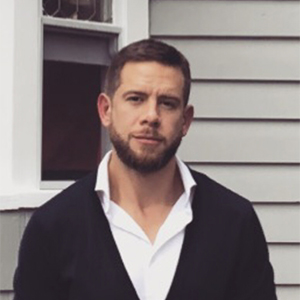 Declan Fry is a writer, poet, and essayist. Born on Wongatha country in Kalgoorlie, he was shortlisted for the Judith Wright Poetry Prize in 2020 and awarded the 2021 Peter Blazey Fellowship for the Meanjin essay ‘Justice for Elijah or a Spiritual Dialogue With Ziggy Ramo, Dancing’. His work has appeared in Australian Book Review, Liminal, The Monthly, The Guardian, Overland, Westerly, and elsewhere. Twitter: @_declanfry.
Declan Fry is a writer, poet, and essayist. Born on Wongatha country in Kalgoorlie, he was shortlisted for the Judith Wright Poetry Prize in 2020 and awarded the 2021 Peter Blazey Fellowship for the Meanjin essay ‘Justice for Elijah or a Spiritual Dialogue With Ziggy Ramo, Dancing’. His work has appeared in Australian Book Review, Liminal, The Monthly, The Guardian, Overland, Westerly, and elsewhere. Twitter: @_declanfry.
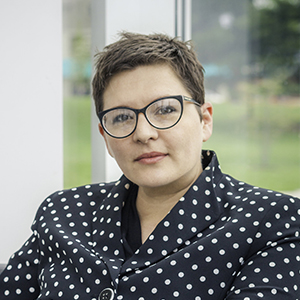 Beejay Silcox is an Australian writer and critic, and the recipient of ABR’s Fortieth Birthday Fellowship. Her literary criticism and cultural commentary regularly appear in national arts publications, and is increasingly finding an international audience, including in the Times Literary Supplement, The Guardian and The New York Times. Her award-winning short stories have been published at home and abroad, and have been selected for a number of Australian anthologies.
Beejay Silcox is an Australian writer and critic, and the recipient of ABR’s Fortieth Birthday Fellowship. Her literary criticism and cultural commentary regularly appear in national arts publications, and is increasingly finding an international audience, including in the Times Literary Supplement, The Guardian and The New York Times. Her award-winning short stories have been published at home and abroad, and have been selected for a number of Australian anthologies.
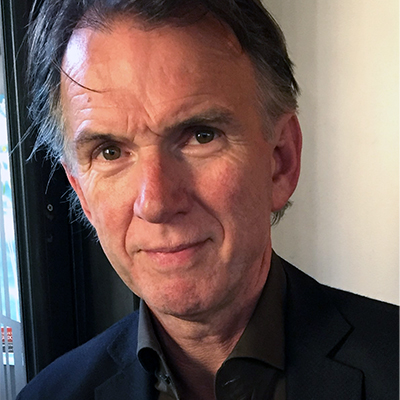 Peter Rose has been Editor of Australian Book Review since 2001. Previously he was a publisher at Oxford University Press. His reviews and essays have appeared mostly in ABR. He has published six books of poetry, two novels, and a family memoir, Rose Boys (Text Publishing), which won the 2003 National Biography Award.
Peter Rose has been Editor of Australian Book Review since 2001. Previously he was a publisher at Oxford University Press. His reviews and essays have appeared mostly in ABR. He has published six books of poetry, two novels, and a family memoir, Rose Boys (Text Publishing), which won the 2003 National Biography Award.
Entries have now closed for the 2022 Calibre Essay Prize. We thank everyone who entered. Judging is now underway. We will name the winners in the May 2022 issue.
Status: Closed for entries
Prize money: $7,500
Open until: 17 January 2022, 11:59 pm
Judges: Declan Fry, Peter Rose, and Beejay Silcox
Past winners
Click the link for more information about past winners and to read their essays.
FAQs and Terms and Conditions
Please read our Frequently Asked Questions before contacting us with queries about the Calibre Prize.
Before entering the Calibre Essay Prize, all entrants must read the Terms and Conditions.
Exclusivity
Entries may be offered elsewhere during the judging of the Calibre Prize. If an entrant is longlisted and has their essay offered elsewhere, the entrant will have 24 hours to decide if they would like to withdraw their essay on offer elsewhere or from the Calibre Prize. Exclusivity is essential for longlisted essays. The overall winning essay will be published in the magazine in the May 2022 issue with the runner-up to be published later in the year.
Entry fees
Current ABR subscribers: $15
Standard/non subscribers: $25*
*All non-subscribers will automatically receive four-month digital access to ABR free of charge.
Entry + subscription bundles
Entry + 1-year digital subscription: $80
Entry + 1-year print subscription (Australia): $100
Entry + 1-year print subscription (NZ and Asia): $190
Entry + 1-year print subscription (Rest of World): $210
Those who purchase a subscription while entering will be able to submit subsequent entries at the subscriber rate ($15).
ABR warmly acknowledges the generous support of ABR Patrons Mary-Ruth Sindrey and Peter McLennan.
2022 Porter Prize Judges
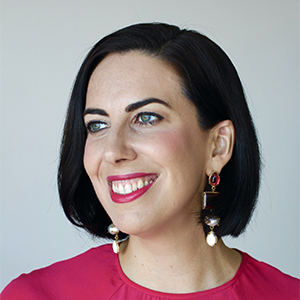 Sarah Holland-Batt is the author of two award-winning books of poetry, Aria and The Hazards (UQP), and a forthcoming volume of essays on contemporary poetry, Fishing for Lightning: The spark of poetry (UQP, 2021). She is the recipient of a number of honours, including the Prime Minister’s Literary Award for Poetry and a Sydney Myer Creative Fellowship. As of 2021, she is the Judy Harris Writer in Residence at the Charles Perkins Centre at the University of Sydney, and works as a Professor at QUT.
Sarah Holland-Batt is the author of two award-winning books of poetry, Aria and The Hazards (UQP), and a forthcoming volume of essays on contemporary poetry, Fishing for Lightning: The spark of poetry (UQP, 2021). She is the recipient of a number of honours, including the Prime Minister’s Literary Award for Poetry and a Sydney Myer Creative Fellowship. As of 2021, she is the Judy Harris Writer in Residence at the Charles Perkins Centre at the University of Sydney, and works as a Professor at QUT.
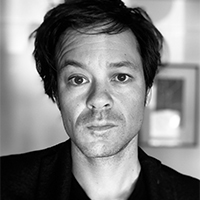 Jaya Savige’s most recent collection is Change Machine (UQP 2020). He is Assistant Professor of English and Head of Creative Writing at New College of the Humanities, Northeastern University, and Poetry Editor for The Australian. His previous collections include Latecomers, which won the New South Wales Premier’s Prize for Poetry, and Surface to Air, shortlisted for The Age Poetry Book of the Year and the West Australian Premier’s Prize. He read for a PhD on James Joyce at the University of Cambridge as a Gates Scholar, and has held Australia Council residencies at the B.R. Whiting Library, Rome, and the Cité Internationale des Arts, Paris.
Jaya Savige’s most recent collection is Change Machine (UQP 2020). He is Assistant Professor of English and Head of Creative Writing at New College of the Humanities, Northeastern University, and Poetry Editor for The Australian. His previous collections include Latecomers, which won the New South Wales Premier’s Prize for Poetry, and Surface to Air, shortlisted for The Age Poetry Book of the Year and the West Australian Premier’s Prize. He read for a PhD on James Joyce at the University of Cambridge as a Gates Scholar, and has held Australia Council residencies at the B.R. Whiting Library, Rome, and the Cité Internationale des Arts, Paris.
 Anders Villani holds an MFA from the University of Michigan’s Helen Zell Writers’ Program, where he received the Delbanco Prize for poetry. His first full-length collection, Aril Wire, was released in 2018 by Five Islands Press. A PhD candidate at Monash University, he lives in Melbourne.
Anders Villani holds an MFA from the University of Michigan’s Helen Zell Writers’ Program, where he received the Delbanco Prize for poetry. His first full-length collection, Aril Wire, was released in 2018 by Five Islands Press. A PhD candidate at Monash University, he lives in Melbourne.
2022 Peter Porter Poetry Prize
Australian Book Review is delighted to announce the shortlist for the 2022 Peter Porter Poetry Prize. First presented in 2005, the Porter Prize is one of the world’s leading prizes for a new poem. It is worth a total of $10,000.
This year, our judges – Sarah Holland-Batt, Jaya Savige, and Anders Villani – had 1,330 poems to assess. Prefacing their comments on the shortlist (each appraisal appears below the shortlisted poets), the judges said:
This year’s entries to the Peter Porter Poetry Prize were richly impressive and varied, among which the shortlisted poems – focused on Australia’s recreational hunting culture, mathematics and computation, family abuse, the outset of love, and, metapoetically, the state of Australian poetry itself – impressed with their formal mastery, lyricism, and wit. Broadly, the judges observed that the entries this year tended away from briefer lyric and elegiac modes in favour of expansive poems with a more immediate political and social justice focus. The five accomplished shortlisted poems each share a narrative bent, a focus on form (four out of five are stanzaic), and a capacity to startle and surprise with vivid imagery, linguistic torque, humour, and juxtaposition.
Reading the shortlisted poems
The shortlisted poems will appear in our January–February 2022 issue. The print edition is available to purchase now, simply click here and follow the prompts.
'Sixes and sparrows' by Chris Arnold (WA, Australia)
 Chris Arnold is a poet and software engineer from Perth, on Whadjuk Noongar country. Chris is currently completing a PhD in Creative Writing at the University of Western Australia. Chris specialises in electronic literature and information security, and he is the recipient of a Queensland Literary Award for a collaboration with David Thomas Henry Wright. He is the outgoing web editor for Westerly, and his work has appeared in Westerly, Cordite, and ABR’s States of Poetry.
Chris Arnold is a poet and software engineer from Perth, on Whadjuk Noongar country. Chris is currently completing a PhD in Creative Writing at the University of Western Australia. Chris specialises in electronic literature and information security, and he is the recipient of a Queensland Literary Award for a collaboration with David Thomas Henry Wright. He is the outgoing web editor for Westerly, and his work has appeared in Westerly, Cordite, and ABR’s States of Poetry.
Judges: Framed by an epigraph from the cryptographer and cyber-security analyst Bruce Schneier, ‘Sixes and Sparrows’ is an enigmatic, deeply absorbing work that blurs the boundaries between human consciousness and the mathematical, computational networks that govern much of our contemporary lives. Composed in an impressively sustained poetics of parataxis and disjunction, this poem’s rhizomatic bouquet, a cluster of synaptic firings, reveals connections between such seemingly disparate phenomena as binary logic and human touch, memory and taxidermy, email transfer protocols and the poet’s orphic descent into networked language.
'Gippslanding (triptych)' by Dan Disney (South Korea/Australia)
 Dan Disney’s most recent books are accelerations & inertias (Vagabond Press, 2021) and the anthology New Directions in Contemporary Australian Poetry (co-edited with Matthew Hall; Palgrave, 2021). His writing appears in Angelaki, Kenyon Review, Antipodes, Orbis Litterarum, and CounterText, and he is a regular reviewer with World Literature Today. He teaches with the English Literature Program at Sogang University in Seoul, South Korea.
Dan Disney’s most recent books are accelerations & inertias (Vagabond Press, 2021) and the anthology New Directions in Contemporary Australian Poetry (co-edited with Matthew Hall; Palgrave, 2021). His writing appears in Angelaki, Kenyon Review, Antipodes, Orbis Litterarum, and CounterText, and he is a regular reviewer with World Literature Today. He teaches with the English Literature Program at Sogang University in Seoul, South Korea.
Judges: Balancing ode and lament on its blade-edge, this poem ventures a coruscating and radically original mythopoetic of Australia’s (white, male) recreational hunting culture. The poet’s lyrical attention to the instant and whipcrack enjambments evoke the hunt in its drama and decadence, barbarism and fraternity. Steeped in vernacular, rigorous in its critique, tensioned by the conflict between Graeco-Roman and Indigenous systems of understanding, the poem represents an important enquiry into a sphere of Australian life rarely glimpsed on the page.
'Australianesque' by Michael Farrell (Vic., Australia)
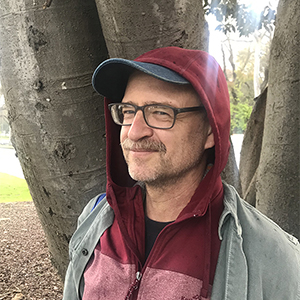 Michael Farrell’s books include Family Trees and I Love Poetry (both published by Giramondo), the scholarly Writing Australian Unsettlement: Modes of Poetic Invention 1796–1945 (Palgrave Macmillan), and, as editor, Ashbery Mode (TinFish), an Australian tribute to John Ashbery. Born in Bombala, NSW, in 1965, Michael has lived in Melbourne since 1990. Michael Farrell won the 2012 Peter Porter Poetry Prize.
Michael Farrell’s books include Family Trees and I Love Poetry (both published by Giramondo), the scholarly Writing Australian Unsettlement: Modes of Poetic Invention 1796–1945 (Palgrave Macmillan), and, as editor, Ashbery Mode (TinFish), an Australian tribute to John Ashbery. Born in Bombala, NSW, in 1965, Michael has lived in Melbourne since 1990. Michael Farrell won the 2012 Peter Porter Poetry Prize.
Judges: Thrillingly unpredictable, satirical and stylish, this playful metapoetic sonnet sequence conjures the ghost of an unpublished poem the speaker insists was written by the late Peter Porter about Christopher Brennan. Inhabiting the personae, variously, of Brian Castro and Helen Garner, the mercurial and shapeshifting speaker – by turns a writer, scholar, and poet –suggests that a degree of impersonation, slippage between identities, or even imposture is central to the spirit of Australian poetry, dragging Gwen Harwood’s famous acrostic hoaxes, Ned Kelly, and Ted Hughes along for the exhilarating ride.
'In the Shadows of Our Heads' by Anthony Lawrence (QLD, Australia)
 Anthony Lawrence has published sixteen books of poems, the most recent being Ken (Life Before Man, 2020). His books and individual poems have won a number of awards, including the Peter Porter Poetry Prize, the Prime Minister’s Literary Award for Poetry, the Philip Hodgins Memorial Medal, and the Blake Poetry Prize. A new book of poems, Ordinary Time, a collaboration with the poet Audrey Molloy, is to be published in 2022. He teaches Creative Writing at Griffith University, Queensland, and lives on Moreton Bay.
Anthony Lawrence has published sixteen books of poems, the most recent being Ken (Life Before Man, 2020). His books and individual poems have won a number of awards, including the Peter Porter Poetry Prize, the Prime Minister’s Literary Award for Poetry, the Philip Hodgins Memorial Medal, and the Blake Poetry Prize. A new book of poems, Ordinary Time, a collaboration with the poet Audrey Molloy, is to be published in 2022. He teaches Creative Writing at Griffith University, Queensland, and lives on Moreton Bay.
Judges: Brimming with surprise, supple, pitch-perfect imagery, linguistic energy and wit, ‘In the Shadows of Our Heads’ is a stunningly vibrant poem by a masterful technician at the top of his game. This unusual love poem revels in the unpredictability of those connections, intellectual and physical, forged between simpatico minds and damaged bodies across space and time. A vivid, potent reminder of love’s dance of proximity and distance – at a time when these fundamental bases of human intimacy have been thrown into fraught relief – it is a work deftly attuned to our present moment.
'Hummingbird Country' by Debbie Lim (NSW, Australia)
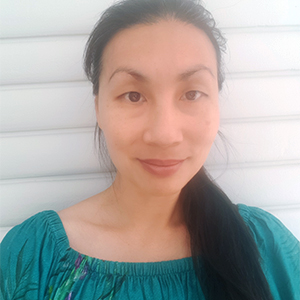 Debbie Lim’s poems have appeared regularly in the Best Australian Poems series and in Contemporary Asian Australian Poets, among other anthologies. Recent work appears or is forthcoming in Meanjin, Westerly, Overland, Mascara Literary Review, and Island. She has received the ArtsACT Rosemary Dobson Award. Her chapbook, Beastly Eye, was published by Vagabond Press, and she is working on a full-length collection. She lives in Sydney.
Debbie Lim’s poems have appeared regularly in the Best Australian Poems series and in Contemporary Asian Australian Poets, among other anthologies. Recent work appears or is forthcoming in Meanjin, Westerly, Overland, Mascara Literary Review, and Island. She has received the ArtsACT Rosemary Dobson Award. Her chapbook, Beastly Eye, was published by Vagabond Press, and she is working on a full-length collection. She lives in Sydney.
Judges: A masterly exhibition of poetry’s capacity to blur boundaries: between tragic and comic; between literal and surreal; between sincerity and play; between climax and bathos. In this moving work, an ostensibly simple premise blossoms, through arresting imagery and an exquisite command of caesura, into a testament to the imagination’s resilience. Such is the poet’s control of their subject matter here that every line feels tuned for maximum suspense and surprise, yet remains spacious, yielding neither poignancy nor levity. A rare, and luminous, balance.
Chris Arnold (WA), ‘Sixes and sparrows’ – Shortlisted
Emily Barker (UK), ‘River song’ – Longlisted
Katherine Brabon (Vic.), ‘Autoimmune’ – Longlisted
Nandi Chinna (WA), ‘Glomerular Filtration Rate 11’ – Longlisted
Eileen Chong (NSW), ‘Curlew’ – Longlisted
Eileen Chong (NSW), ‘Dream Kitchen’ – Longlisted
Eileen Chong (NSW), ‘Letters Without Stamps’ – Longlisted
Dan Disney (South Korea/Australia), ‘Gippslanding (triptych)’ – Shortlisted
Michael Farrell (Vic.), ‘Australianesque’ – Shortlisted
Joan Fleming (Vic.), ‘Ambition’ – Longlisted
Jennifer Fraser (Canada), ‘Blue Sky of the Brain’ – Longlisted
Lou Garcia-Dolnik (NSW), ‘Why Some People in the Philippines Are Living with the Dead (A VICE Documentary)’ – Longlisted
Maddie Godfrey (WA), ‘Pretty Sick’ – Longlisted
Jake Goetz (NSW), ‘The Feed’ – Longlisted
Benjamin Halliwell (NSW), ‘Thinking of Bullocky’ – Longlisted
Jennifer Harrison (Vic.), ‘Mandelbrot Set’ – Longlisted
Anthony Lawrence (QLD), ‘In the Shadows of Our Heads’ – Shortlisted
Debbie Lim (NSW), ‘Hummingbird Country’ – Shortlisted
Audrey Molloy (NSW), ‘Evening, Rushcutters Bay’ – Longlisted
Damen O'Brien (QLD), ‘The Gallery of Winds’ – Longlisted
Robyn Rowland (NSW), ‘Precision’ – Longlisted
Ann Shenfield (Vic.), ‘A treatment’ – Longlisted
Sian Vate (Vic.), ‘roughly’ – Longlisted
Tais Rose Wae (NSW), ‘Reading Scribbly Gum’ – Longlisted
Click here for more information about past winners and to read their poems.
We gratefully acknowledge the long-standing support of Morag Fraser AM and Andrew Taylor AM.
Payment Complete – Elizabeth Jolley Prize
Thank you for entering the Elizabeth Jolley Short Story Prize.
If you created a new account to enter, you can now sign in with the Username and Password you entered. Simply click 'Sign In' in the top left-hand corner to enter your details. We hope you enjoy reading our extensive archive going back to 1978.
If you wish to submit another entry to the Elizabeth Jolley Short Story Prize, click here to return to the entry form. Remember to first sign in with your new ABR account before entering multiple entries.
ABR Editorial Cadetship
Applications are now closed for the ABR Editorial Cadetship.
The Cadetship (supported by the Judith Neilson Institute for Journalism and Ideas) is a full-time twelve-month position, starting in April 2021. The total package is worth $45k to $50K per annum (plus superannuation).
![]() Position description and application guidelines
Position description and application guidelines
'I feel a tremendous sense of pride to have worked for a prestigious literary and arts journal that upholds exemplary editorial standards while fostering emerging talent.'
Dilan Gunawardana
ABR Deputy Editor (Digital) 2017-2018, ABR Editorial Intern 2016–17
‘Being on the staff of a magazine of the calibre of Australian Book Review, with its long history in Australian letters and fine editorial standards, is a singular experience, and it has no doubt been the defining event of my professional life thus far.’
Milly Main
ABR Ian Potter Foundation Editorial Intern, 2012
‘As the recipient of an internship at Australian Book Review in 2009, I know the benefits of such a program firsthand. My internship was an unqualified success, and resulted not only in an increase in my editing knowledge and skills, but also in full-time employment.’
Mark Gomes
ABR Australian Publishers Association Editorial Intern, 2009

